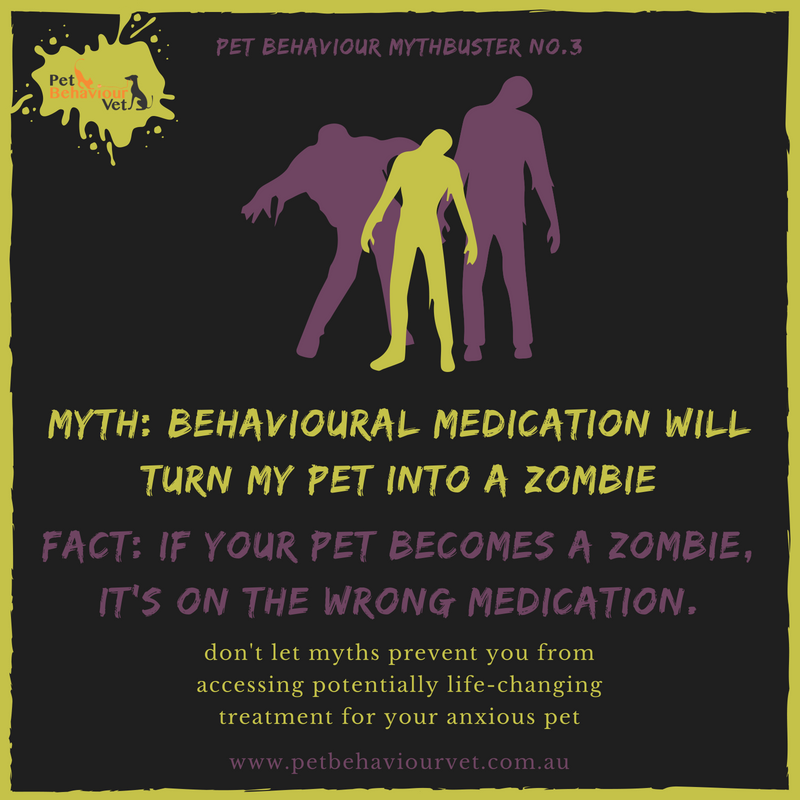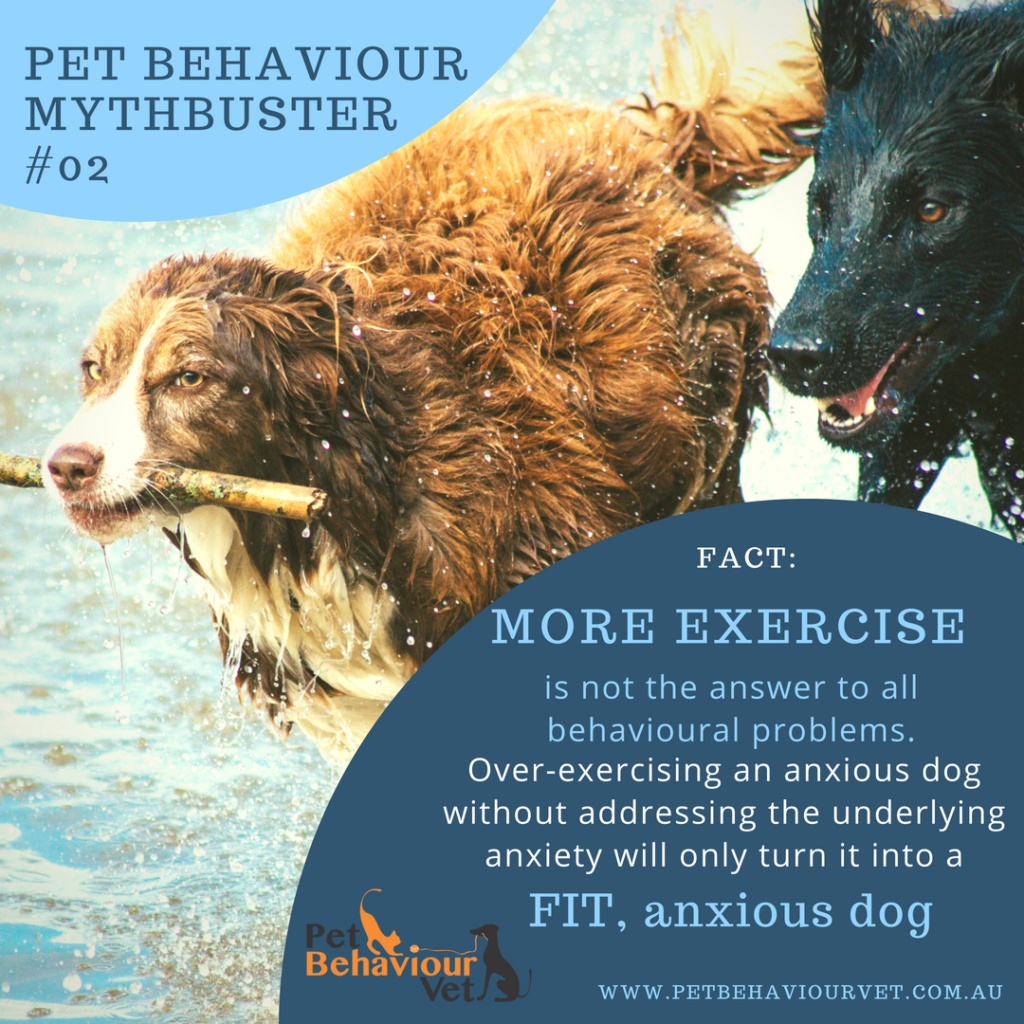The purpose of modern behavioural medications, when prescribed correctly, is to treat disease. They help an unhealthy brain function in a more healthy way, to allow the animal to learn more efficiently and make good choices.
They are not supposed to mask underlying problems or sedate an animal. If a professional is telling you this, they may not understand how these medications work.
Ask yourself if you would say the same about other medical treatments like insulin, antibiotics or hearing aids.
- Dr Jo
Dr Joanna McLachlan is an accredited Behaviour Veterinarian. She is the owner of Pet Behaviour Vet, a mobile behaviour only veterinary practice in Sydney, Australia. If you would like to enquire about having a consultation with Dr Joanna, please contact us. Don't forget to Like us on Facebook and subscribe to our blog.




